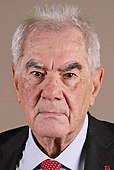| |||||||||||||||||||||||||||||||||||||||||||||||||||||||||||||||||||||||||||||||||||||||||||||
All 41 seats in the City Council of Barcelona 21 seats needed for a majority | |||||||||||||||||||||||||||||||||||||||||||||||||||||||||||||||||||||||||||||||||||||||||||||
|---|---|---|---|---|---|---|---|---|---|---|---|---|---|---|---|---|---|---|---|---|---|---|---|---|---|---|---|---|---|---|---|---|---|---|---|---|---|---|---|---|---|---|---|---|---|---|---|---|---|---|---|---|---|---|---|---|---|---|---|---|---|---|---|---|---|---|---|---|---|---|---|---|---|---|---|---|---|---|---|---|---|---|---|---|---|---|---|---|---|---|---|---|---|
| Opinion polls | |||||||||||||||||||||||||||||||||||||||||||||||||||||||||||||||||||||||||||||||||||||||||||||
| Registered | 1,142,444 | ||||||||||||||||||||||||||||||||||||||||||||||||||||||||||||||||||||||||||||||||||||||||||||
| Turnout | 755,983 (66.2%) | ||||||||||||||||||||||||||||||||||||||||||||||||||||||||||||||||||||||||||||||||||||||||||||
| |||||||||||||||||||||||||||||||||||||||||||||||||||||||||||||||||||||||||||||||||||||||||||||
| |||||||||||||||||||||||||||||||||||||||||||||||||||||||||||||||||||||||||||||||||||||||||||||
The 2019 Barcelona City Council election, also the 2019 Barcelona municipal election, was held on Sunday, 26 May 2019, to elect the 11th City Council of the municipality of Barcelona. All 41 seats in the City Council were up for election. The election was held simultaneously with regional elections in twelve autonomous communities and local elections all throughout Spain, as well as the 2019 European Parliament election in Spain.
The contest was won by Republican Left of Catalonia (ERC), which under the leadership of Ernest Maragall—brother of former Barcelona mayor and president of the Government of Catalonia Pasqual Maragall with the Socialists' Party of Catalonia (PSC)—came out on top in a municipal election in Barcelona for the first time in history, as a resurgent PSC drew votes away from incumbent mayor Ada Colau's Barcelona in Common (BComú). Colau was able to retain the mayorship through an BComú—PSC alliance that received the support of Barcelona for Change (BCN Canvi) councillors under Manuel Valls, the former prime minister of France, who after his failed run at the 2017 French presidential election was nominated by the liberal Citizens (Cs) to become their mayoral candidate in his city of birth. Valls's support of Colau's investiture was based on his stated intention to prevent the pro-Catalan independence camp from securing control over Catalonia's capital city.
Together for Catalonia (JxCat), the new brand of former Democratic Convergence of Catalonia (CDC) members who had openly embraced a Catalan independence ideology following the dissolution of the Convergence and Union (CiU) federation in June 2015, fell to fifth place to a record-low 10.5% of the vote under the leadership of Joaquim Forn, the former Interior minister who was at the time at preventive detention because of his involvement in the organization of the controversial 2017 Catalan independence referendum. Concurrently, support for the People's Party (PP) plummeted even further to its worst historical showing, barely passing the five percent threshold with 5.01%, whereas the Popular Unity Candidacy (CUP) was expelled from the city council altogether.
Cite error: There are <ref group=lower-alpha> tags or {{efn}} templates on this page, but the references will not show without a {{reflist|group=lower-alpha}} template or {{notelist}} template (see the help page).





